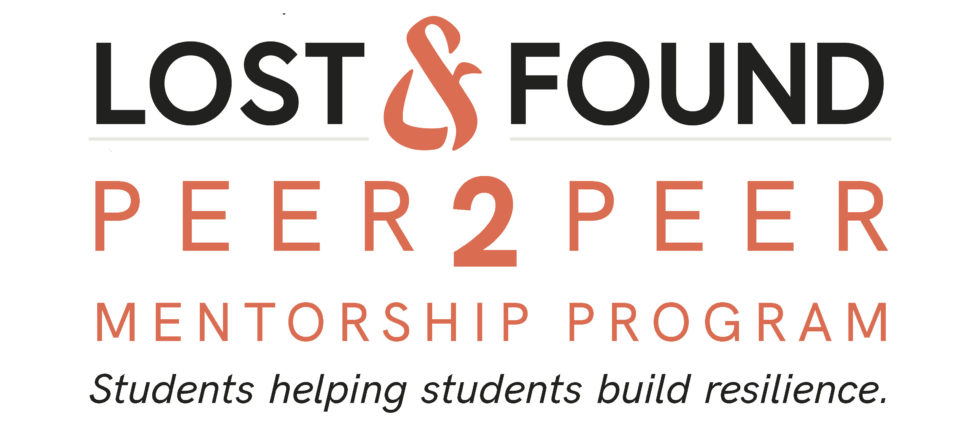Lost&Found’s Peer2Peer Mentorship Program expanding to seven additional campuses in South Dakota
After a successful pilot project at South Dakota State University (SDSU) last spring, the suicide prevention nonprofit Lost&Found is continuing its Peer2Peer Mentorship Program at SDSU and expanding the program to seven additional post-secondary schools in South Dakota. This program expansion is funded through a Center for Disease Control and Prevention grant awarded to the State of South Dakota and governed through an agreement established with the South Dakota Department of Health.
The program matches student mentors, who are often students planning to go into health or mental health professions, with students who need support. Counseling centers on college campuses have long wait times as demand for their services has increased in recent years, and the mentoring program aims to help alleviate some of that burden.
Peer2Peer Mentorship Program expansion efforts were jumpstarted by the fundraising efforts of Paul and Leigh Longley and the inaugural Ben’s Long Ball 22 Classic Golf Tournament, held in July 2021. Funding from the tournament provided initial funding to train peer mentors at SDSU and the University of South Dakota, as well as create new digital materials and training guides for the program. The new program partnership with the South Dakota Department of Health guarantees two years of funding for ongoing program support for eight institutions throughout the state, with emphasis on serving post-secondary institutions in the Black Hills region.
Mentors connect at-risk students with campus resources, help them set academic and personal goals, and support them in times of struggle. The program serves mentors by providing them comprehensive training around mental health, goal setting, and mentoring skills. L&F also has a graduate assistant at both SDSU and USD who provides ongoing coaching and support to student mentors.
Susan Kroger, Director of Programs at Lost&Found, worked with Carrie Jorgensen, a campus counselor and a Lost&Found adviser at SDSU, to develop the program. Kroger described the program when it was in its pilot program stage:
At the start of the program, mentors go through a two-hour training that includes relationship basics such as active listening.
“The most important of this program is that relationship that’s built between the mentor and mentee, and students really need to know how to build that relationship,” Kroger said.
Mentors also complete QPR (Question, Persuade, Refer) suicide prevention training and receive instruction on setting boundaries so that mentors themselves don’t start to feel overburdened.
Lost&Found continues to actively recruit peer mentors and mentees statewide on post-secondary campuses where the program is delivered. To get involved or learn more about getting involved the program, community members are encouraged to contact Kroger (skroger@resilienttoday.org) for more information.
About Lost&Found
Lost&Found facilitates comprehensive, data-driven, resilience-focused, public mental health strategies for suicide prevention, serving young adults ages 15-34. We have 16 campus partners in South Dakota and Minnesota. Our work is based around three areas:
- Student Programs: Delivering resilience programs for K-12 & college campuses, and training student advocates to lead and support the mental health of their peers.
- Evaluation & Research Services: Applying public health expertise to assess and score campus or organization resource capacity across people, policies, & programs and provide outsourced evaluation services.
- Education & Advocacy: Addressing community and organization mental health needs through community coalition and policy efforts, targeted digital public mental health content, and partnership development.

